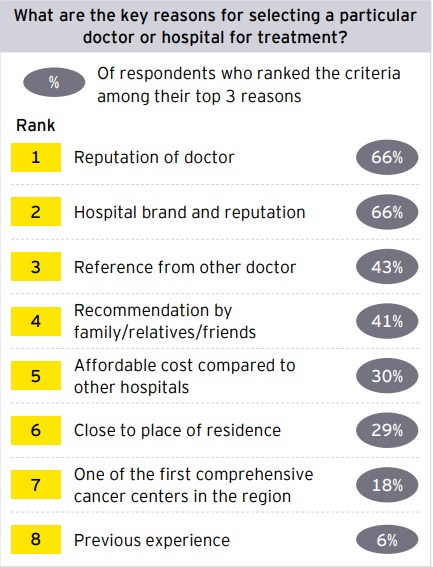Service Facts › Cancer Research & Education
Thoughtful Insights
It is an indisputable fact that India faces an epidemic of non-communicable diseases and cancer cases continue to grow at an alarming rate. Moreover, as compared to other countries, cancer is diagnosed at later stages in India, and consequently the mortality rates are higher and recovery rates lower. Education of society at large, and doctors in particular, can play a major role in diagnosing cancer early, thus ensuring better treatment outcomes and cures. Predictive and precision medicine have come to the fore globally in the past few years and are helping to ensure that diagnostic and therapeutic procedures lead to early diagnosis and targeted treatment, reducing morbidity and mortality and improving quality of life of cancer survivors.
Cancer screening has completely stopped in the last two years when the Covid pandemic was raging. As a result, a huge chunk of the cases went undetected and will likely create repercussions in the years to come.The new estimates will be helpful in planning cancer prevention and control activities through the intervention of early detection, risk reduction and management.
PET-CT can help in making more accurate diagnosis, thereby helping in better treatment planning leading to improved outcomes and survival rate. Unlike CT and MRI, which show anatomic detail, PET images show biochemical or physiologic phenomena. PET can often distinguish between benign and malignant lesions which CT and MRI cannot. Studies typically have indicated 4% to 15% improvement in overall accuracy of staging/restaging and a 30% to 50% improvement in the confidence of lesion localization66. India has 0.25 PET–CT scanners per million population 67 while the developed countries such as the US, Australia and many West European countries have 3 PET–CT scanners per million population68. While high capital expenses are a major inhibitor in equipment addition, operational challenges and expenses are a barrier to scale up.
While PMJAY covers PET-CT, some of state insurance schemes (MJPJAY, Telangana Arogyashri, Arogya Karnataka, Swasthya Sathi) have no provision to cover PET-CT related expenses as part of the scheme reimbursement separately110, 109, 112, 107. Consequently, often centers providing treatment under these schemes do not offer PET-CT scanning as part of the diagnostic protocol. 75% of the oncologists in the US use genomics as a tool of treatment wherein In India, genomics is leveraged only on 1% of eligible population. Insurance companies and the government should play a role in including these advanced tests in their panel and offer coverage.
A space largely ignored in cancer care is the prevention and screening aspect as well as palliative care and rehabilitation. Cancer patients in India deserve the whole spectrum of care, irrespective of affordability and where they live.
Challenges faced by Patients are: Lack of information around disease renders us to make ill-informed decisions at times, Non availability of good hospitals locally, Recovery of the patient is not as expected, delays in getting surgery appointments, Confusion with respect to treatment prognosis, High cost, high waiting time during procedures and finalization of procedures, More empathy expected from the healthcare provider and less waiting time between tests.
Post diagnosis, patients need to take decisions on various aspects such as finalizing treating doctor, hospital, second opinion and treatment plan. The survey revealed that patients usually rely on information provided by doctors followed by friends, family and relatives when it comes to deciding upon the provider. Patients seeking cancer information also use cancer support groups and online searches. Cancer support groups and online searches are also used by patients seeking cancer information. Dependence on multiple information sources sometimes leads to confusion and also increases the probability of encountering incorrect or unauthentic information. To counter this, a single reliable source providing all required information is one way which can help reduce the time between diagnosis to treatment. Since most patients consider reputation of doctor and hospital as the reason for selection of provider, access to a regularly updated database listing practicing doctors and oncology specialists along with their medical credentials and accredited hospitals specializing in cancer care could aid patients making faster and more informed decisions.

For the complete report, please click
